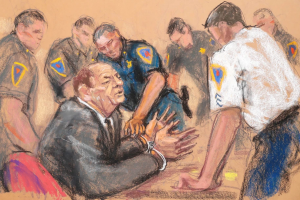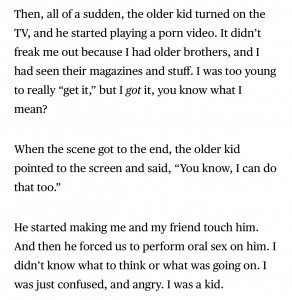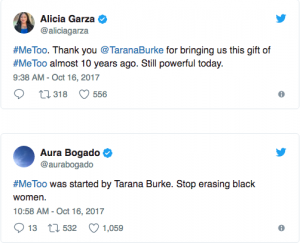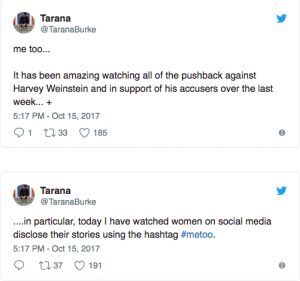Terry Crews made a very powerful point while speaking before a Senate committee hearing on sexual assault survivor rights.
The “Brooklyn Nine-Nine” actor testified for a Senate judiciary committee hearing on Tuesday to encourage legislators to pass the Sexual Assault Survivors’ Bill of Rights in all 50 states. Crews, who
publicly accused Hollywood executive Adam Venit of groping him at a party in 2016, gave his account of his sexual assault to highlight the importance of legislation to protect survivors’ rights.
At one point during the hourlong hearing, Sen.
Dianne Feinstein (D-Calif.) asked Crews about the night he was groped. She asked when the assault happened, where it took place, whom he told about it and if he tried to hide what happened.
“I was very vocal immediately,” he responded. “The first reaction was to be violent, and I immediately held back.”
Feinstein interrupted and asked, “Why weren’t you? You’re a big, powerful man. Why didn’t you
[makes pushing gesture]?”
The question is one that
many male survivors of sexual violence hear. People often assume that if a man could have overpowered his assailant, he wouldn’t have been assaulted. Unfortunately, many don’t understand the
fight, flight or freeze response. (Many survivors unconsciously freeze.)
Additionally, people tend to forget that there are other dynamics at play. Crews explained the power constructs in place that night.
“Senator, as a black man in America, you only have a few shots at success. You only have a few chances to make yourself a viable member of the community,” he said, becoming visibly emotional. “I’m from Flint, Michigan. I have seen many, many young black men who were provoked into violence, and they were in prison, or they were killed. And they’re not here.”
He credited his wife with calming him down that night and giving him the strength to walk away.
“My wife for years prepared me,” Crews told Feinstein. “She said, ‘If you ever get goaded, if you ever get prodded, if you ever have anyone try to push you into any kind of situation, don’t do it. Don’t be violent.’ She trained me. I’ll be honest with you. It was the strength of my wife who trained me and told me, ‘If this situation happens, let’s leave.’ And the training worked. Because I did not go into my first reaction. I grabbed her hand, and we left.”
Crews was joined by
Amanda Nguyen, the founder of
anti-sexual-violence nonprofit Rise and
creator of the Sexual Assault Survivors’ Bill of Rights.
The measure would ensure that survivors are informed of their rights by law enforcement and have access to a counselor and rape kit, that the rape kit is preserved for the duration of the statute of limitations and that survivors are notified about the forensic results of a kit and before a kit is destroyed. Then-President
Barack Obama signed the bill at the federal level in 2016.
“I sit here before you as an example because a lot of people don’t believe that a person like me could actually be victimized. And what happened to me has happened to many, many other men in Hollywood,” Crews said. “Since I came forward with my story, I have had thousands and thousands of men come to me and say, ‘Me too. This is my story.’”
Crews, a former NFL player, has long been
an outspoken feminist advocate who has repeatedly discussed the
damaging effects of sexism and
toxic masculinity.
Last month
he spoke to HuffPost about how hard it has been to come forward with his sexual assault allegation as a straight black man.
“People expect a guy like me to always be tough,” he said. “But the thing is, as a black man, the only time you’re really recognized as being victimized is when you’re dead. Otherwise, you don’t get hurt, you don’t get tired ... It’s like people think you’re supposed to jump through the air and dunk from one place to the next.”
 Master Zik
M
Mark Antony
Master Zik
M
Mark Antony
 .
.
 idk who Lampley is tho outside a quick google search
idk who Lampley is tho outside a quick google search


































